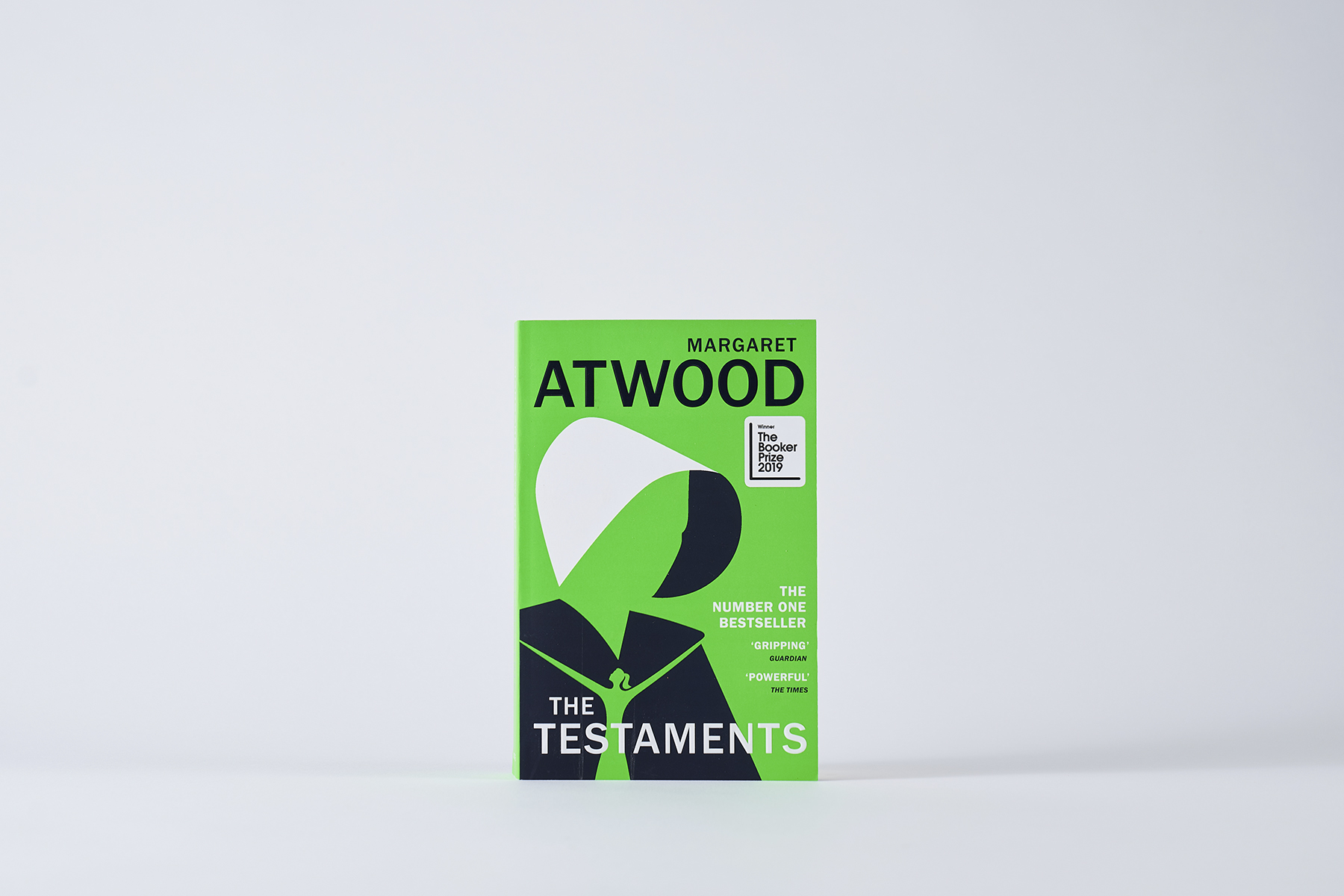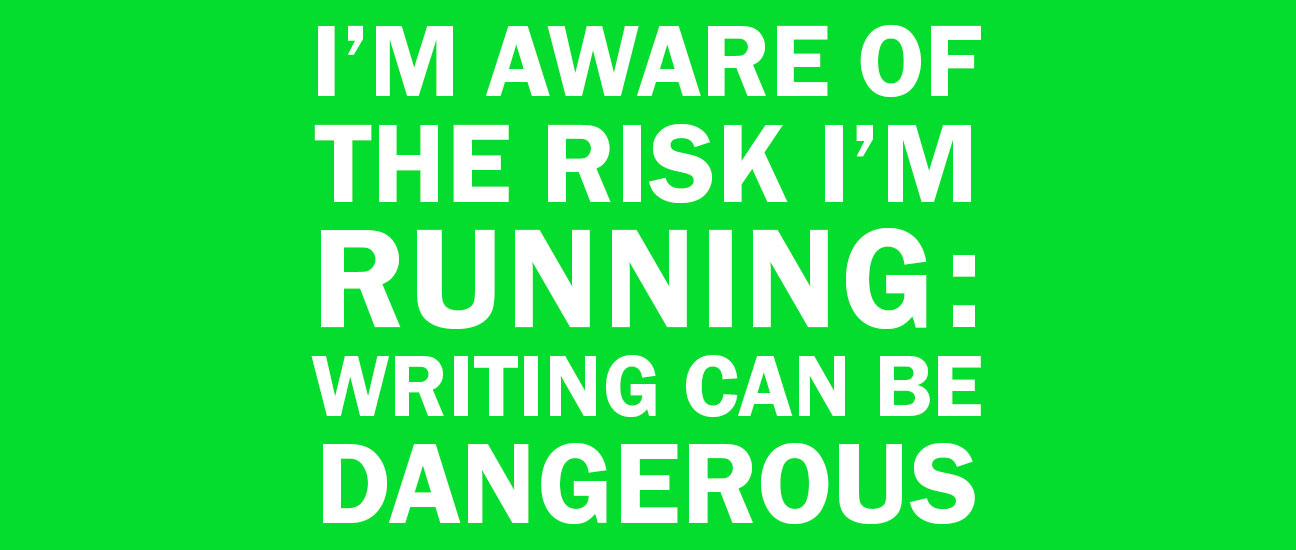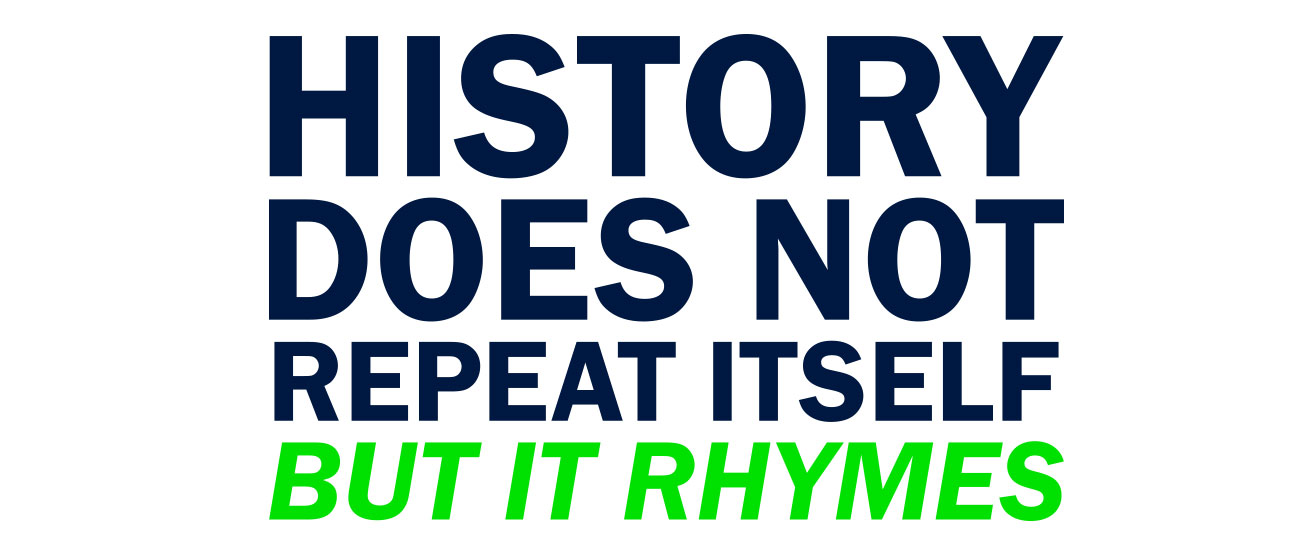- Home |
- Search Results |
- The ultimate introduction to The Testaments
The ultimate introduction to The Testaments
With plot details, character profiles and quotes that have already become iconic, this is the ultimate introduction to Margaret Atwood’s Booker Prize-winning, bestselling The Testaments.
WARNING: CONTAINS MILD SPOILERS ABOUT THE TESTAMENTS.

1. ‘I’m aware of the risk I’m running: writing can be dangerous’
Who is this writing? The Testaments makes us wait a while before we can be sure. Women aren’t allowed to read or write in Gilead. Except for the Aunts, as it’s their job to keep records of who is related to whom. Even so, Aunt Lydia, who is responsible for Offred and her fellow Handmaids in The Handmaid’s Tale, isn’t documenting marriages and births here. She is setting out her stall, documenting what she has done as one of Gilead’s founding members – behind the scenes of course. Women don’t get any credit in the totalitarian state, whether they’re good or bad. And as The Testaments unfolds, we see more clearly than ever that good and evil aren’t black and white.
2. ‘Beneath its outer show of virtue and purity, Gilead was rotting’
Atwood has said that ‘totalitarianisms go through several different stages, especially those based on ideologies. The early, purist stage when people actually believe in it. And then a middle, consolidating stage when people inside it squabble over power. And then a late stage when corruption has set in.’
In The Testaments we are at the middle-to-late stage and the rot has set in. As Aunt Lydia makes her case – hiding her scribbled pages inside a hollowed out copy of Cardinal Newman’s nineteenth-century defence of his religious views Apologia Pro Sua Vita – she reveals how corruption permeates right through the centre of Gilead’s establishment, and how adept she is at playing the game. Wielding her cattle prod, she was never part of any outward show of virtue. But there is more to her than her reputation would suggest.
3. ‘Everyone had a place in Gilead, everyone served in her own way’
Much has happened since the end of The Handmaid’s Tale and a generation of girls are now growing up with no knowledge beyond the world of Gilead. One of them is the second narrator of this book. As we get to know Agnes Jemima, we learn that she is the daughter of a powerful Commander and his Wife, Tabitha. At her Vidala School (named after one of Gilead’s founding Aunts) she learns embroidery, Bible stories and the rightful place of women. She accepts her role and believes what she is told: that women are a temptation to men and it’s their job not to inflame men’s urges. She is not, however, taught how to read or write. Not yet.

4. ‘Wedlock: it had a dull metallic sound, like an iron door clicking shut’
Agnes sees how easily marriage could become a prison in all but name as she transitions from being just a schoolgirl dressed all in pink to a young woman being measured for the spring green outfit that will signify her period has started, she has become a woman and is ready for a husband. She awaits her fate with dread. One day, in flower-arranging class, her friend Becka cuts her wrist with her pair of secateurs – she is terrified of marriage or, more specifically, of sex. The girls aren’t sure what has happened to her but Agnes later finds out she survived and is in training to become an Aunt. The door of opportunity which is about to be closed on her by marriage is pushed open just a touch. Might there be another kind of life for her in Gilead?
5. ‘Keep your friends close but your enemies closer. Having no friends, I must make do with enemies’
In The Testaments we see the extent of Aunt Lydia's power: every classroom and every household has a picture of her on the wall; girls tremble at the mention of her name; Commanders listen to her advice. And her fellow founding Aunts, Vidala, Elizabeth and Helena, resentfully follow her lead. But Lydia knows better than to trust anyone in Gilead. As the other Aunts try to discredit one another by placing offerings of oranges and fresh eggs at the foot of Lydia’s larger-than-life statue (a crime of idolatry), we begin to see how she has survived – even flourished – in this place.
6. ‘They always appeared in twos. They had white pearl necklaces and smiled a lot, but not real smiling’
We first hear of the Pearl Girls from Aunt Lydia, whose creation they are (though her immediate Commander, Judd, took the credit, naturally). We then encounter them on a mission in Canada, in the testament of our third narrator. There, they come in pairs in their silvery dresses and strings of pearls to The Clothes Hound, the second-hand clothes shop owned by the narrator’s parents, to deliver leaflets proclaiming the virtues of life in Gilead. They are looking for women to take back home as ‘one more precious pearl’ in Gilead’s string, to become Wives or Aunts or, sometimes, Handmaids. When the Pearl Girls leave the shop, they always take back any old brochures so that they can be redistributed in other countries (Gilead is very eco-conscious and against waste’).
7. ‘Melanie had a distant smell. She smelled like a floral guest soap in a strange house I was visiting’
Who is this third narrator? When we meet her, Daisy is about to turn 16. She and her parents, Neil and Melanie, lead an unremarkable life. Like the second narrator, she has grown up with the reality of Gilead, though she has lived outside it. She wrote an essay about Baby Nicole – the child who was smuggled out of Gilead by her Handmaid mother and Mayday – at school, and she’s planning to join a forthcoming anti-Gilead protest. Neil and Melanie forbid it but she goes anyway. Why are they so concerned about it, when all her classmates are allowed to go?

8. ‘That birthday was the day I discovered that I was a fraud’
Daisy’s trip to the protest triggers a series of events that will propel the novel to its final dramatic and dangerous conclusions. First, she finds herself being whisked away from her home, then she must confront a network of secrets and lies that have her questioning everything she has so far held to be true. It is these secrets and lies that finally bring all three characters together and reveal their shared connections.
9. ‘How quickly a hand becomes a fist’
The Testaments is a novel of fighting back, of standing up to authority from within and without. It’s a novel about the lessons of history and the power of people young and old to attack the status quo to determine their own futures, no matter how huge the task.

10. ‘History does not repeat itself, but it rhymes’
This line is often attributed to Mark Twain and in the novel comes in the notes wrapping up the 13th Symposium of Gilead Studies, following the same trick as Atwood uses in The Handmaid’s Tale. It is said as a quip, a neat observation by an academic looking back on something that happened perhaps 100 years ago. But is it also Atwood herself, warning us about the state of the world today?